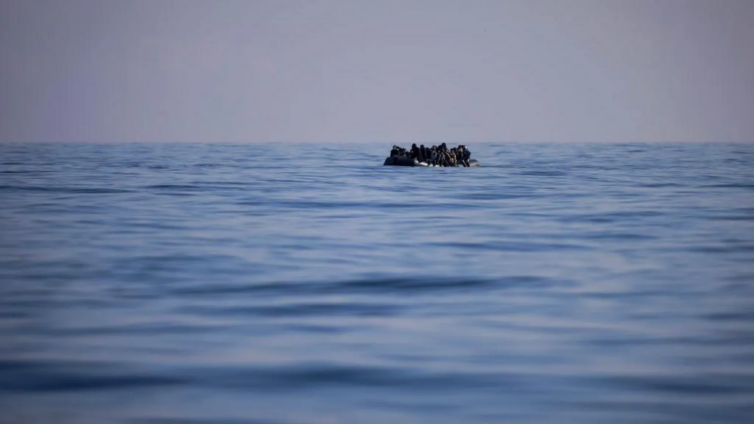
Audio By Carbonatix
Moroccan authorities on Sunday prevented dozens of migrants from storming a border fence to reach the Spanish enclave of Ceuta, after calls on social media for a mass migration attempt.
Spain's two enclaves on Morocco's Mediterranean coast, Ceuta and Melilla, share the only land borders of the European Union with Africa. The enclaves sporadically experience waves of attempted crossings by migrants trying to reach Europe.
In the most recent attempt, dozens of migrants gathered on top of a hill in Fnideq on the border on Sunday and began throwing stones at Moroccan security forces, a video shared by local news websites showed. Police prevented them from approaching the Ceuta fence.
Moroccan authorities said they arrested at least 60 people last week for using social media to incite migrants to attempt a mass crossing.
Since Friday, Moroccan security forces have been deployed heavily in Fnideq.
"This is the heaviest security deployment ever in Fnideq with authorities acting pre-emptively by setting up multiple checkpoints on roads to northern Morocco," Mohammed Ben Aissa, a local human rights activist said.
Hundreds of would-be migrants had been bussed away from Fnideq, he said. Most of the migrants are Moroccan youths, joined by a smaller number of migrants from sub-Saharan Africa. Many of them arrive in Fnideq on foot and hide in nearby forests to evade authorities, said Zakaria Razzouki, a rights activist in Fnideq. Moroccan security forces try to prevent crossings at the land border and patrol the beach to prevent migrants from swimming to Ceuta, he said.
Morocco's interior ministry did not respond to a Reuters request for comment.
Morocco and Spain have strengthened their cooperation in addressing illegal migration since they patched up a separate diplomatic feud in 2022.
In the first eight months this year, Morocco stopped 45,015 people from illegally migrating to Europe, according to interior ministry figures.
Last month, hundreds of migrants took advantage of a thick mist to swim to Ceuta, Spanish police said.
Tighter surveillance of Morocco's northern borders has prompted an increasing number of migrants to try the riskier and longer Atlantic route to the Canary Islands.
Latest Stories
-
‘I will never forget you’ – Kennedy Agyapong thanks supporters, NPP delegates after primaries
2 minutes -
Woman found dead in boyfriend’s room at Somanya
2 hours -
Woman feared dead after being swept away in Nima drain amid heavy rain
2 hours -
Court grants GH¢10k bail to trader who posed as soldier at 37 Military Hospital
2 hours -
Tano North MP secures funding to reconstruct decades-old Yamfo Market
2 hours -
Haruna Iddrisu discharged after road traffic accident
2 hours -
Kenyans drop flowers for Valentine’s bouquets of cash. Not everyone is impressed
2 hours -
Human trafficking and cyber fraud syndicate busted at Pokuase
3 hours -
Photos: First Lady attends African First Ladies for Development meeting in Ethiopia
3 hours -
2026 U20 WWCQ: Black Princesses beat South Africa to make final round
3 hours -
World Para Athletics: UAE Ambassador applauds Ghana for medal-winning feat
4 hours -
Photos: Ghana’s path to AU Chairmanship begins with Vice Chair election
4 hours -
Chinese business leader Xu Ningquan champions lawful investment and deeper Ghana–China trade ties
5 hours -
President Mahama elected AU First Vice Chair as Burundi takes over leadership
5 hours -
Police work to restore calm and clear road after fatal tanker crash on Suhum–Nsawam Highway
6 hours

